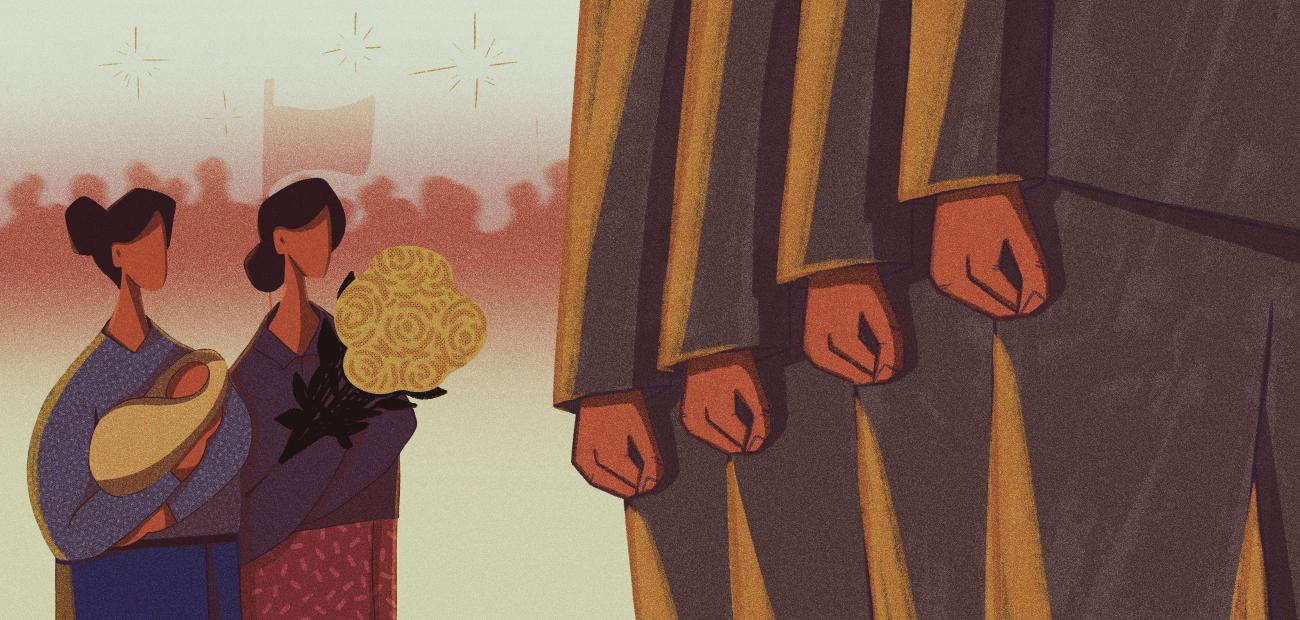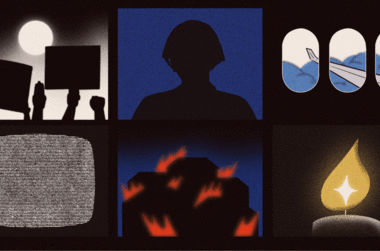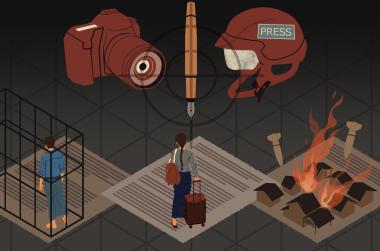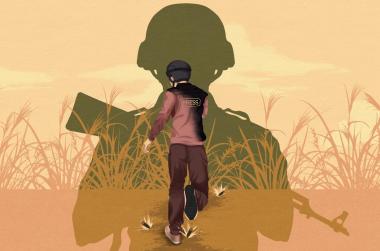The author is a Kayah journalist who is receiving support from The Kite Tales to write these diaries.
Three women, each holding a young child in their arms, were sitting under a tree as we approached, waiting patiently for a lift to take them onwards. When our car pulled closer, they leaped up and ran after it, hauling themselves and their children inside even though by any measure it was already full. Pushing and shoving, they secured their spots and we continued our journey.
Traffic is normally scarce on this dirt road, which winds through the forest. It is used mostly by troops belonging to the Karenni Army, the local resistance force in this region of Myanmar. But this was the day before the graduation ceremony of new recruits and suddenly this was a sought after route.
I was travelling to cover the ceremony as a journalist. These women were going to see their husbands officially become Karenni Army fighters.
After the 2021 military coup in Myanmar, many Karenni men – and quite a few women - decided to take part in the armed revolution. Their remaining family members often support them with pride, despite their own hardships.
Every day, there are clashes between Myanmar’s coup regime and the Karenni Army, as well as the People's Defence Forces and other armed groups.
Children of fighters are looked after and fed by their mothers, often struggling alone. With conflict raging around them, women who are left behind end up fleeing their homes, so they have neither employment nor income. Of the 300,000 people who were living in Karenni State, about a third - 100,000 - have lost their homes and are still displaced.
The road climbed precariously, zigzagging on the mountain side. Conditions were very bad after the recent rains. This has led water to gush down from the mountains, leaving the roads muddy and damaged.
Finally we reached our destination, where the air was icy and a cluster of makeshift buildings formed part of the resistance army barracks. Most of the passengers got out of the car and wandered off to find friends and comrades, but the group of women seemed lost and looked around desperately.
It turned out they had no idea where their husbands were stationed and were anyway not allowed to see them immediately. They had come to this harsh and chilly place with their young children because they were determined to support their husbands. But they had nowhere to stay.
I hunted around and found a small hut to spend the night, so invited them to huddle in there too for the night. The cries and murmurs of the children, all under the age of five, filled the little hut which couldn’t fully protect them from the chill.
At around six the next morning, as the mist still clung to the trees we walked to the clearing where the graduation is due to be held. Shrouded in mist, we could see the road ahead of us but not further away.
It was already crowded with siblings, parents, and friends of the new recruits who had travelled to cheer them on. I would estimate there were about 500 people in total there.
When the ceremony began, the top leaders of the Karenni Army gave rousing speeches and handed out awards to the fresh graduates.
I noticed that the women who were with me had tears in their eyes, so I asked them how they felt.
"I'm happy. But they have to go to war after they graduate,” said one.
“I am proud of them. But I'm also scared of the suffering they will face.”
The recruits sang the Karenni national anthem and took their oaths. They marched and they saluted.
I was told there has never been such a large number of graduates in the Karenni Army's training grounds. Before the coup you may have seen only had tens of people, but since then hundreds have attended military training.
After the ceremony was over, I saw the men run up to their families, hugging and kissing their children. Some of them were crying.
Now that they’ve finished their military training, they will go to the frontline and further away from their families.
As the families took photos with the freshly-minted soldiers, I noticed a woman in her 60s smiling at the crowd from a distance.
I asked her who she was searching for. But she said she was not searching for anyone – she had five nephews graduating but had decided not to meet them because she worried she would be overwhelmed by emotions.
"I’m afraid I will cry,” she told me.
“I feel sorry for them. But I also respect them."
Artwork by JC who is receiving support from The Kite Tales to produce illustrations.





